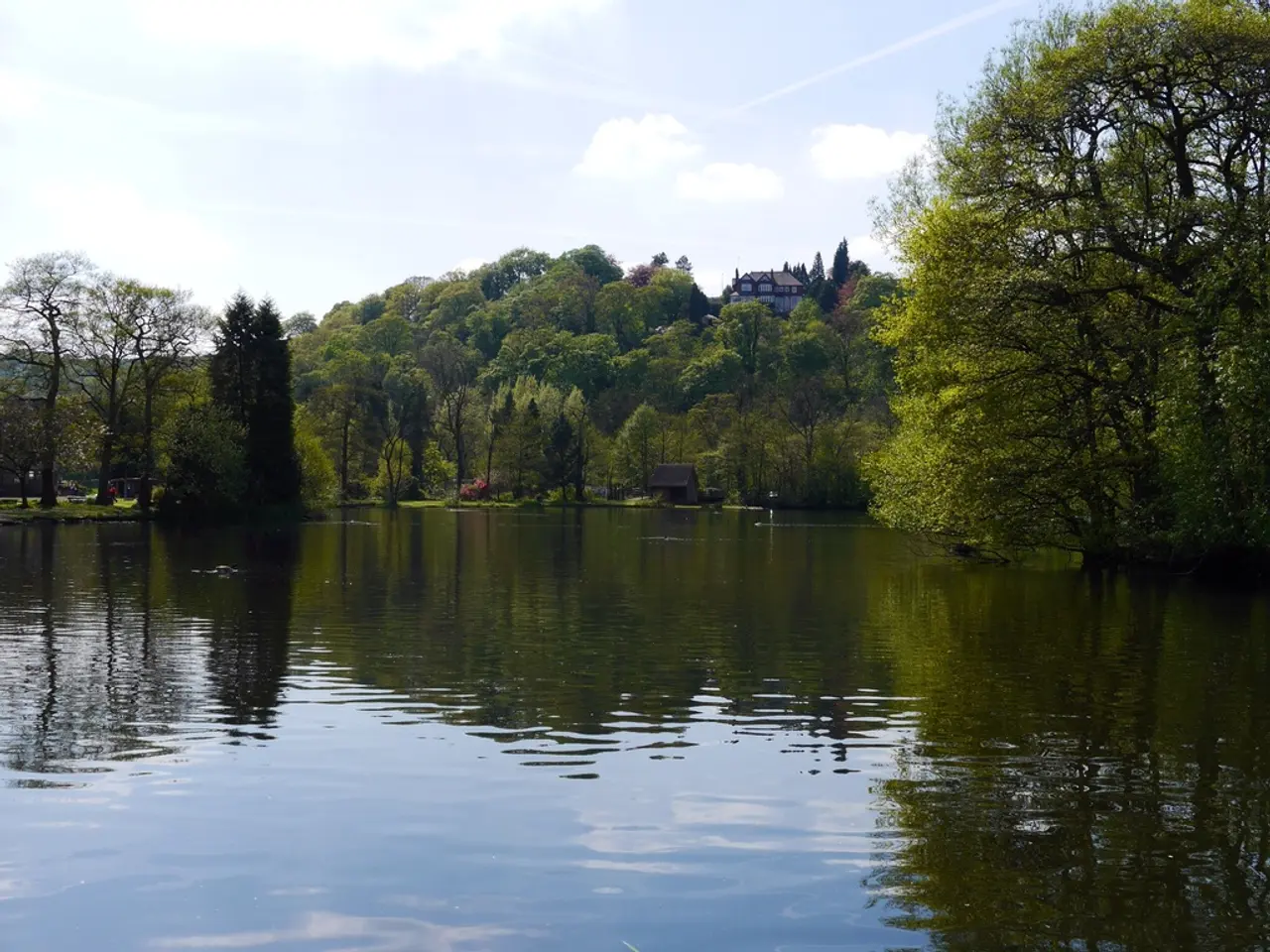Countries in the North-East region jointly advancing water-based tourism initiatives
In the heart of northeastern Germany, a vast aquatic landscape known as Germany's Lake District is making waves in the water tourism industry. This region, spanning thousands of lakes and extensive waterways, includes the Lusatian Lake District and the Mecklenburg Lake District, and is Germany's largest contiguous water sports and lake area.
The Lusatian Lake District, a transformed former coal mining area, is a shining example of eco-tourism success. A $2 billion revitalization project converted old lignite strip mining pits into 26 lakes, surrounded by forests and cycling paths, creating Europe’s largest artificial lakeland. This shift from mining to tourism has revitalized the environment and local economy, attracting tourists for activities such as cycling, fishing, diving, horseback riding, and enjoying pristine beaches.
The economic benefits of water tourism in Germany’s Lake District are significant. The industry provides employment for more than 19,000 people in Mecklenburg-Vorpommern alone. This sector contributes to the added value and improved quality of life for local communities through increased tourism-related revenue. It also strengthens regional infrastructures, hospitality, and leisure services, stimulating ongoing economic development.
The cooperation among the federal states of Berlin, Brandenburg, and Mecklenburg-Western Pomerania under the "Germany's Lake District" brand aims to make it easier for water enthusiasts to plan their sports or holidays. This collaboration helps facilitate tour planning and boost tourism appeal, contributing further to economic growth. The region offers a wide range of water-based activities, attracting tourists seeking active vacations and ecological experiences, thereby diversifying and sustaining the regional economy.
However, the water tourism industry has faced challenges. Defective locks and temporarily missing lock personnel had previously damaged the industry's image and sparked criticism. Despite these issues, experts like Karsten Heinsohn, director of the study from the Economic Scientific Institute for Tourism (diwf), see significant growth potential in closer coordination between providers in Berlin, Brandenburg, and Mecklenburg-Vorpommern.
The updated website for Germany's Lake District, deutschlands-seenland.de, offers tips for multi-day vacation trips by houseboat, canoe, or in combination with cycling. The water tourism industry in Mecklenburg-Vorpommern generates an annual turnover of approximately one billion euros.
According to Wolfgang Blank, independent Minister of Economics of Mecklenburg-Vorpommern, and Daniel Keller (SPD), Brandenburg's counterpart, this cooperation can better utilize the vast tourism potential on the water, benefiting both locals and guests equally. Franziska Giffey (SPD), Mayor and Senator for Economics of Berlin, stated that the goal is to inspire people with unique water offerings. Together, they aim for a cross-border attractive and sustainable water tourism offering, further cementing Germany's Lake District as a prime destination for water enthusiasts.
Read also:
- Harsh Desert Environments Support Thriving Fruit Groves: Agriculture in Severe Climates
- Festival in Berlin: Terrance Hayes Sheds Light in Poetry Event
- Creative Small Canvas Painting Concepts to Experiment: Stimulating Artistic Explorations
- Harnessing the Potency of Shorter Vocabulary: Five-Letter Words Projecting Final Consonants





